
Eilat: The Jewel of the Red Sea
Eilat, located at the southern tip of Israel, is a vibrant city known for its stunning Red Sea coastline, vibrant coral reefs, and year-round sunshine. Whether you are an adventure seeker, a nature lover, or someone looking to relax by the beach, Eilat has something to offer everyone. In Eilat, you can explore the mesmerizing underwater world at the Coral Beach Nature Reserve, where colorful fish and coral reefs create an underwater paradise. For those who prefer staying dry, the Underwater Observatory Marine Park offers a unique glimpse into the ocean's depths without getting wet. The city's striking landscapes extend beyond the sea. Timna Park, with its dramatic sandstone formations and ancient copper mines, offers hiking and biking trails that reveal the region's rich geological history. The Dolphin Reef is another highlight, where visitors can swim with dolphins in their natural habitat. Eilat is also a shopper's paradise with its duty-free status, making it an excellent place to pick up unique souvenirs and gifts. The city's nightlife is vibrant, with numerous bars, clubs, and restaurants offering a taste of local culture and cuisine. Don't miss the chance to try the fresh seafood, straight from the Red Sea. With its sunny climate, beautiful landscapes, and myriad of activities, Eilat is a destination that promises an unforgettable vacation experience.
Local tips in Eilat
- Visit during the cooler months of October to April to enjoy pleasant weather and avoid the summer heat.
- Bring snorkeling or diving gear to explore the rich marine life in the Coral Beach Nature Reserve.
- Take advantage of Eilat's duty-free shopping to find great deals on souvenirs and gifts.
- Book a tour to Timna Park early in the morning to avoid the midday heat and enjoy the best light for photography.
- Try local seafood dishes at one of Eilat's many seaside restaurants for a fresh and delicious meal.
Neighbourhoods in Eilat
Eilat: The Jewel of the Red Sea
Eilat, located at the southern tip of Israel, is a vibrant city known for its stunning Red Sea coastline, vibrant coral reefs, and year-round sunshine. Whether you are an adventure seeker, a nature lover, or someone looking to relax by the beach, Eilat has something to offer everyone. In Eilat, you can explore the mesmerizing underwater world at the Coral Beach Nature Reserve, where colorful fish and coral reefs create an underwater paradise. For those who prefer staying dry, the Underwater Observatory Marine Park offers a unique glimpse into the ocean's depths without getting wet. The city's striking landscapes extend beyond the sea. Timna Park, with its dramatic sandstone formations and ancient copper mines, offers hiking and biking trails that reveal the region's rich geological history. The Dolphin Reef is another highlight, where visitors can swim with dolphins in their natural habitat. Eilat is also a shopper's paradise with its duty-free status, making it an excellent place to pick up unique souvenirs and gifts. The city's nightlife is vibrant, with numerous bars, clubs, and restaurants offering a taste of local culture and cuisine. Don't miss the chance to try the fresh seafood, straight from the Red Sea. With its sunny climate, beautiful landscapes, and myriad of activities, Eilat is a destination that promises an unforgettable vacation experience.
When is the best time to go to Eilat?
Iconic landmarks you can’t miss
Underwater Observatory Park
Explore the wonders of the Red Sea at Underwater Observatory Park, where marine life comes alive in stunning underwater observatories and engaging exhibits.
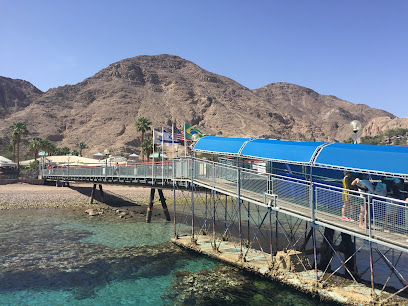
Eilat Coral Beach Nature Reserve
Explore the mesmerizing underwater world and stunning beaches of Eilat Coral Beach Nature Reserve, a top destination for marine adventure seekers.
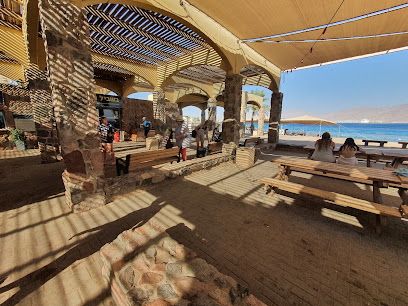
Dolphin Reef
Experience the magic of swimming with dolphins at Dolphin Reef in Eilat, a must-visit destination for marine lovers and adventure seekers.
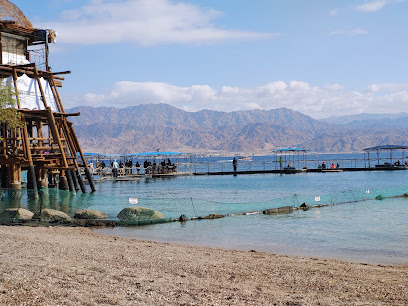
Timna Park
Explore Timna Park: A breathtaking national park in the Negev Desert, rich in natural wonders and ancient history, perfect for adventure seekers.
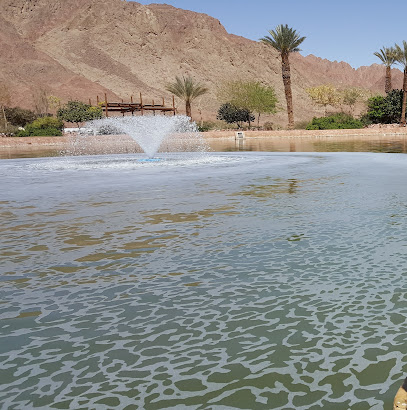
Mosh Beach
Discover the vibrant Mosh Beach in Eilat, where sun, sea, and delicious dining come together for an unforgettable seaside experience.
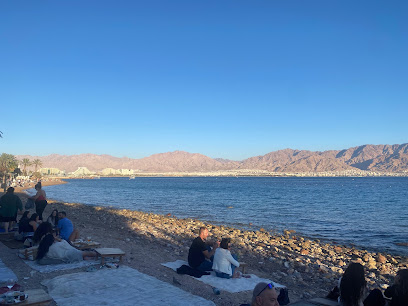
Isrotel King Solomon
Experience unparalleled luxury and breathtaking views at Isrotel King Solomon, Eilat's premier five-star hotel for discerning travelers.

Dekel Beach
Explore Dekel Beach in Eilat: A stunning public beach offering relaxation, vibrant atmosphere, delicious food, and thrilling water sports.
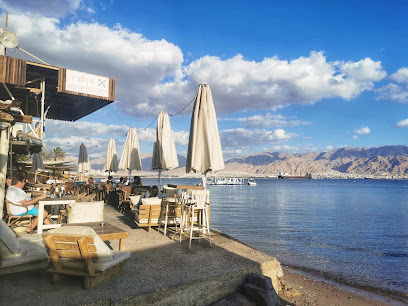
Musical Fountain Eilat
Experience the enchanting Musical Fountain in Eilat, where water, light, and music come together for a mesmerizing evening show that captivates all ages.
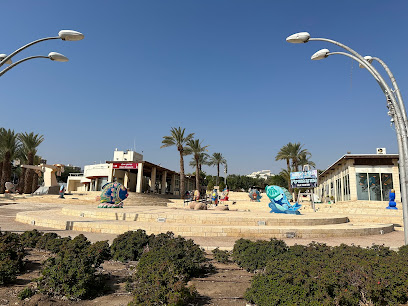
Isrotel Theater Wow Show
Discover the exhilarating Isrotel Theater Wow Show in Eilat, where circus arts and theatrical mastery come together for an unforgettable experience.
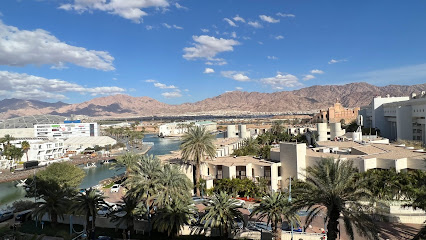
Red Canyon
Discover the stunning Red Canyon in Israel, a breathtaking tourist attraction with vibrant landscapes and diverse outdoor activities for every adventurer.
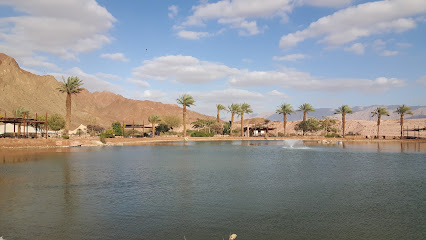
Eilat Light
Experience the flavors of Eilat at Eilat Light, a premier grill and tourist attraction offering stunning views and delicious cuisine.
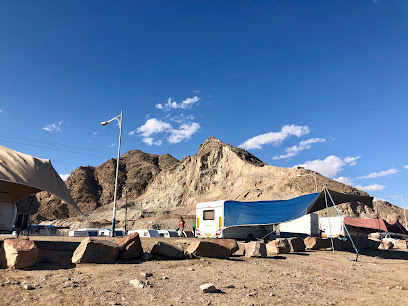
Camel Ranch- Eilat
Discover the magic of the desert at Camel Ranch Eilat, where adventure and tradition meet in a breathtaking landscape.
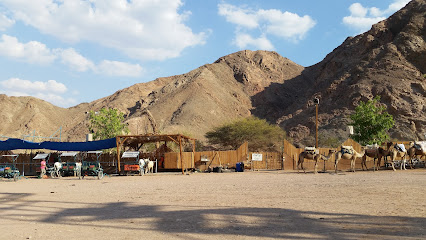
סתלבט על המים
Experience the serene beauty of Dolphin Reef in Eilat, where relaxation meets the wonders of marine life and rejuvenation.
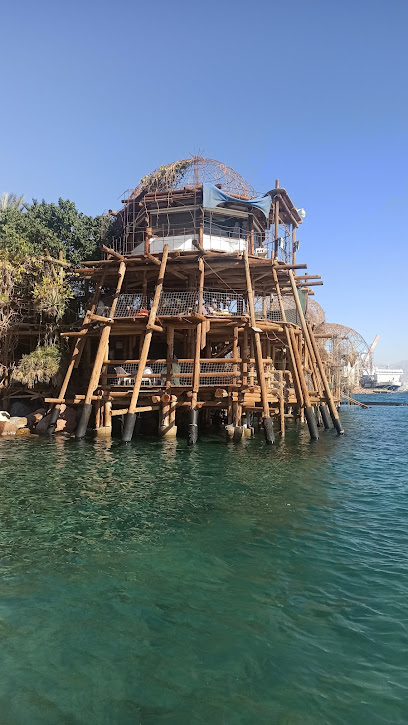
Eilat Field School
Explore Eilat Field School: An Eco-Friendly Hub for Adventure and Marine Education in the Heart of Eilat.

The Botanical Garden
Explore the lush landscapes of The Botanical Garden in Eilat, featuring diverse flora, organic farming, and a tranquil coffee shop for relaxation.
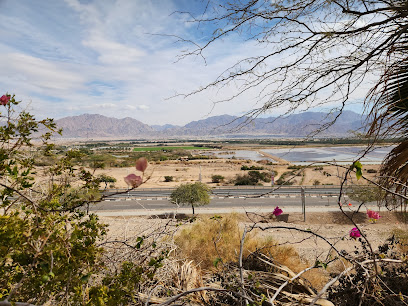
Unmissable attractions to see
Wadi Rum Protected Area
Experience the breathtaking beauty and rich culture of Wadi Rum, a UNESCO World Heritage site in Jordan, renowned for its majestic landscapes and adventure opportunities.
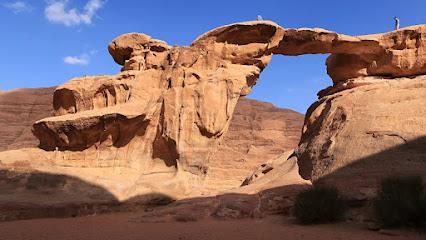
Timna Park
Explore Timna Park, a stunning national park in the Negev Desert, known for its breathtaking landscapes, ancient history, and adventurous hiking trails.
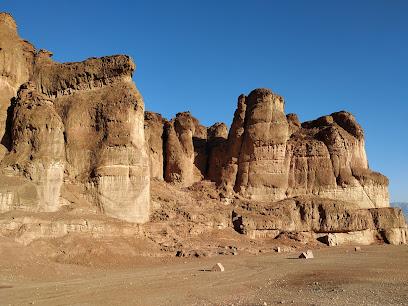
Dekel Beach
Experience the sun-kissed beauty of Dekel Beach in Eilat, where relaxation meets adventure along the stunning shores of the Red Sea.
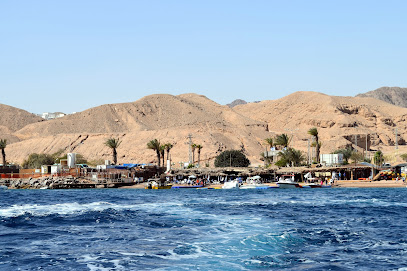
Red Canyon
Discover the stunning beauty of Red Canyon, a natural wonder in Israel, perfect for adventurers and nature lovers seeking unforgettable experiences.
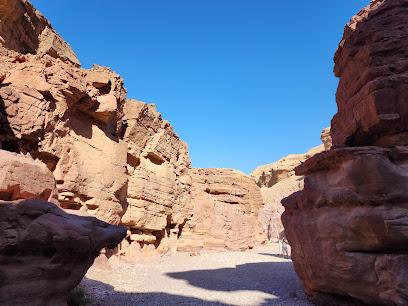
Berenice Beach Club / شاطئ ومنتجع برنيس العقبه
Discover Berenice Beach Club in Aqaba: A beautiful beach destination offering sun, adventure, and local charm along the stunning Red Sea coast.
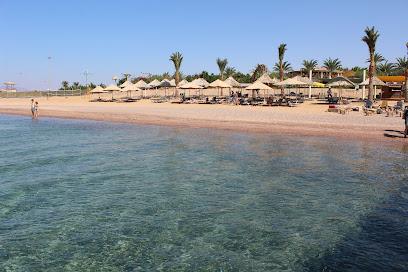
Eilat Light
Discover the stunning views and delectable dishes at Eilat Light, the ultimate tourist attraction and bar & grill in Eilat, Israel, by the beautiful Red Sea.
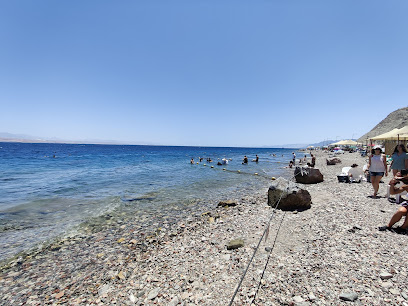
Wadi Rum Visitor Center
Explore the stunning desert landscapes of Wadi Rum from the Visitor Center, your guide to adventure and discovery in Jordan's natural wonder.
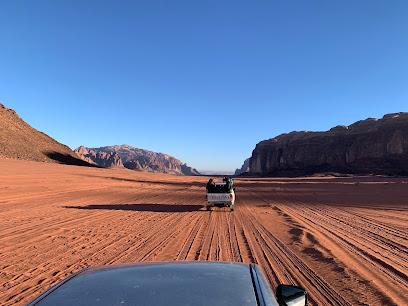
פארק אתגרים Top 94
Experience the thrill of go-karting, paintball, and kosher dining at Top 94, Eilat's ultimate amusement center for fun-seekers and families.
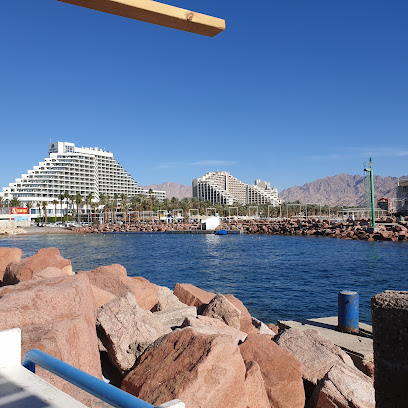
Camel Ranch- Eilat
Discover the beauty of Eilat's desert at Camel Ranch, where adventure and Bedouin culture blend seamlessly for an unforgettable experience.
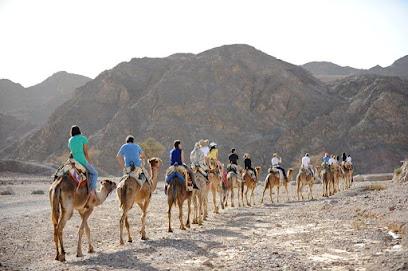
Eilat Ornithological Park
Explore the Eilat Ornithological Park, a scenic birdwatching haven where nature lovers can enjoy diverse wildlife and tranquil landscapes.
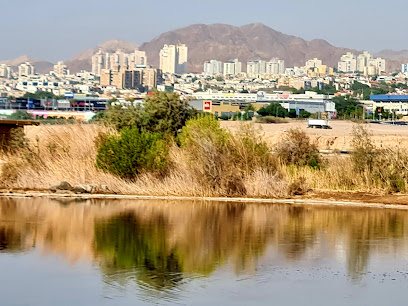
Ayla Oasis
Experience the ultimate luxury at Ayla Oasis in Aqaba, where relaxation meets adventure and exquisite dining awaits.
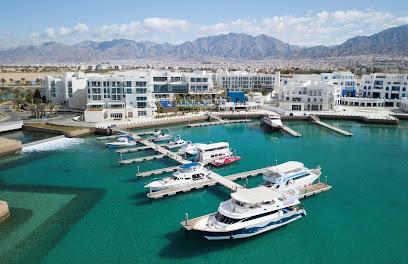
EAPC - Pipeline open Beach
Discover Eilat's Pipeline Open Beach: where adventure meets tranquility in the heart of Israel's stunning Red Sea coastline.
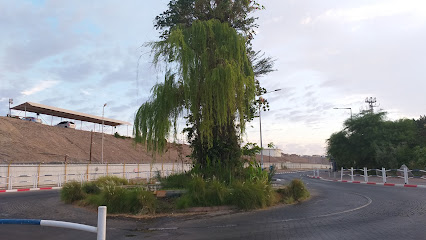
Kisuski
Explore the excitement of water sports and indulge in delightful dining at Kisuski, Eilat's top destination for adventure and relaxation.
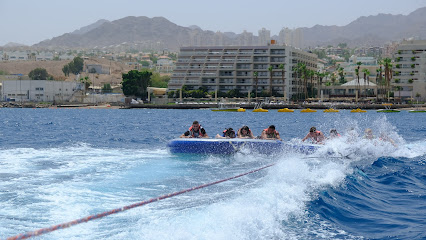
Electric Beach
Discover the beauty and excitement of Electric Beach in Eilat, where sun, sea, and adventure meet for an unforgettable beach experience.
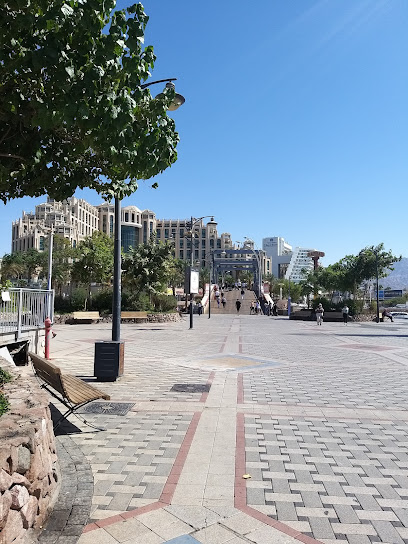
The Botanical Garden
Explore the lush tranquility of The Botanical Garden in Eilat, a vibrant oasis of diverse flora and ecological wonder nestled in the heart of the desert.
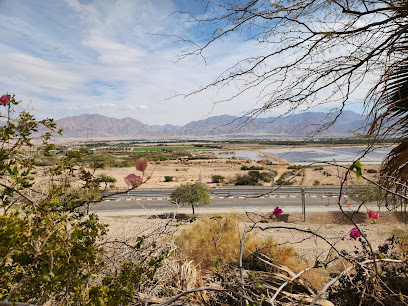
Essential places to dine
Pastory Eilat
Experience authentic Italian flavors at Pastory Eilat, where every dish tells a story of tradition and culinary excellence.
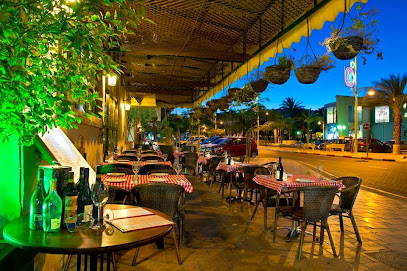
Casa Do Brasil
Experience authentic Brazilian cuisine at Casa Do Brasil in Eilat - where vibrant flavors meet warm hospitality.
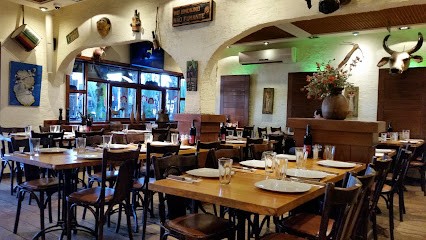
Omer's
Experience the best burgers in Eilat at Omer's – perfect for vegans, vegetarians, and meat lovers alike!
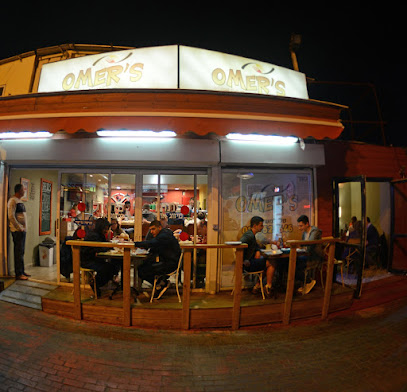
Cafe Optimi Eilat
Experience authentic Italian flavors at Cafe Optimi Eilat - where every meal is crafted with passion and quality ingredients.
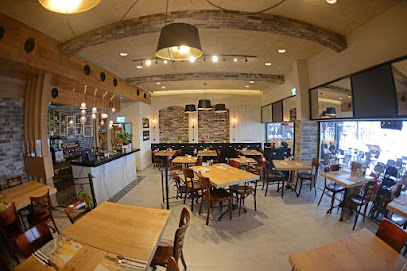
Fish Market
Discover Eilat's Fish Market: A seafood paradise where freshness meets flavor in every delightful bite.
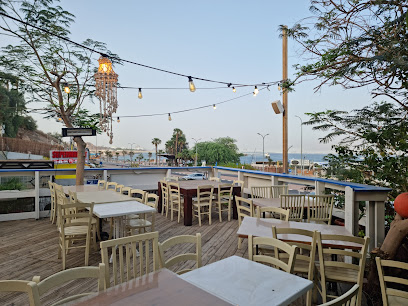
Barbis Eilat
Savor mouthwatering burgers and grilled delights at Barbis Eilat, your go-to spot for delicious meals by the Red Sea.
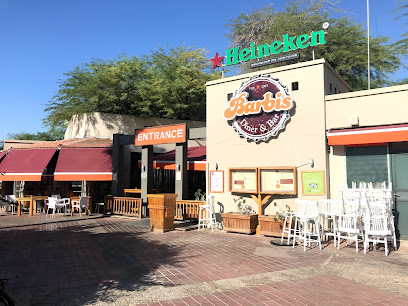
הלב הרחב
Discover the flavors of הלב הרחב in Eilat - a steak lover's paradise offering exquisite barbecue delights in an inviting setting.
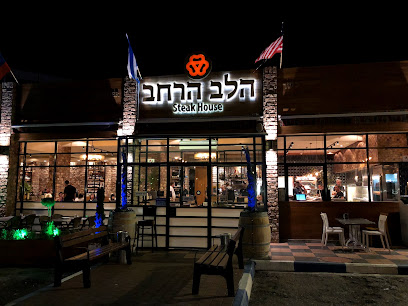
Paddy's
Discover Paddy's: Eilat’s favorite Irish pub offering hearty meals and vibrant nightlife amidst stunning coastal views.
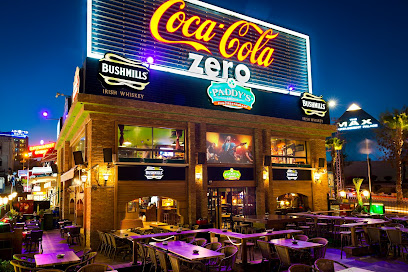
Giraffe Seaside
Experience exquisite Asian cuisine at Giraffe Seaside in Eilat with breathtaking views of the Red Sea – a culinary gem not to be missed.
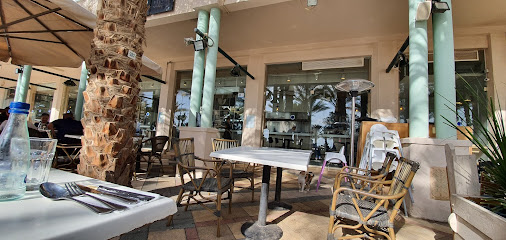
Little Brazil
Experience authentic Brazilian flavors at Little Brazil – Eilat's premier chophouse restaurant offering delicious meat dishes and welcoming ambiance.
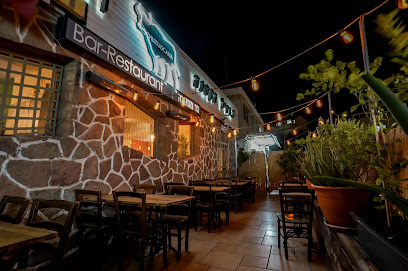
The Last Refuge
Experience culinary excellence at The Last Refuge in Eilat - where fresh seafood meets breathtaking views.
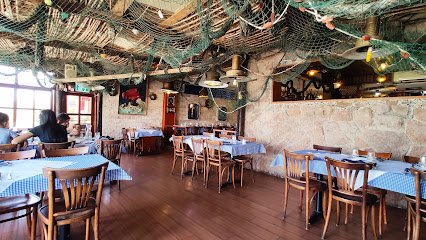
Mike's Place Eilat
Discover Mike's Place Eilat: A lively American restaurant offering great food, live music, and an unforgettable atmosphere in the heart of Eilat.
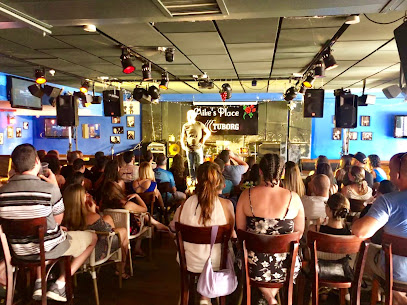
Papi
Experience authentic Argentinian flavors at Papi, Eilat's top chophouse restaurant known for its delicious barbecue and vibrant atmosphere.
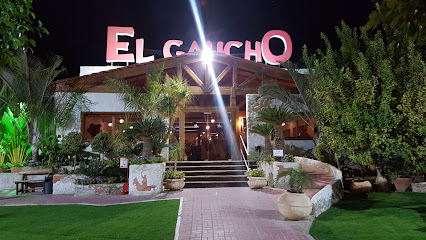
Pedro
Experience the vibrant flavors of barbecue and seafood at Pedro, Eilat's premier dining destination known for its exceptional cuisine.
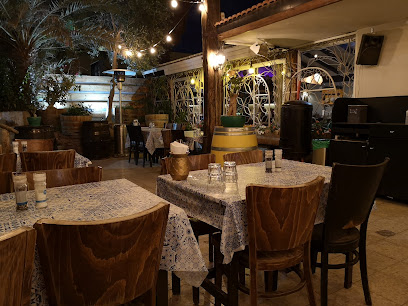
Nine Beach Eilat
Discover Nine Beach Eilat: A culinary gem by the Red Sea offering exquisite dishes and breathtaking views perfect for every occasion.
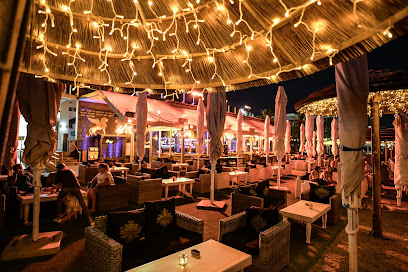
Markets, malls and hidden boutiques
Ice Mall
Explore Ice Mall Eilat: A premier shopping and entertainment destination offering diverse shops, dining, and family-friendly attractions in a vibrant atmosphere.

Azrieli Mall Hayam
Explore Azrieli Mall Hayam in Eilat for an unforgettable shopping experience with diverse stores, delicious dining, and entertainment options.
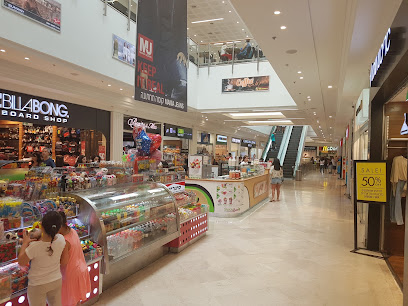
Big Eilat
Experience the lively atmosphere of Big Eilat Shopping Mall, a vibrant hub for shopping, dining, and entertainment in the heart of Eilat, Israel.
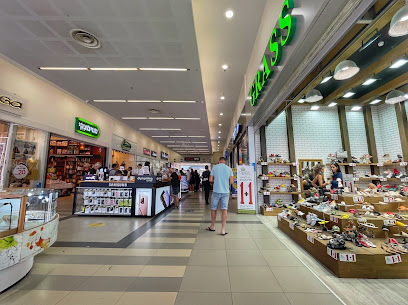
Nike Factory Store
Discover unbeatable deals on Nike sportswear and footwear at the Nike Factory Store in Eilat, your ultimate shopping destination for athletic gear.
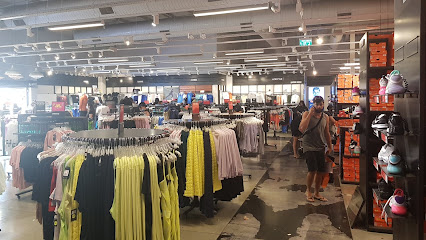
המשביר לצרכן
Discover a shopping paradise at המשביר לצרכן in Eilat, offering a wide range of products for every traveler.
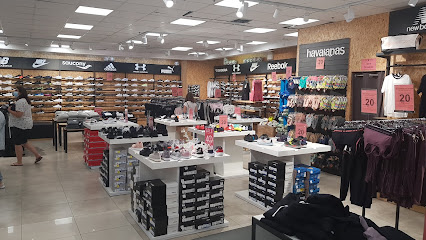
Adidas Outlet
Discover unbeatable prices on top-quality sportswear at the Adidas Outlet in Eilat, your ultimate shopping destination for athletic apparel.
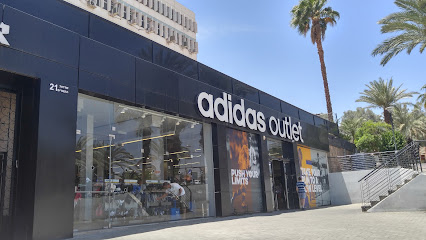
עידן 2000 אילת
Explore Idan 2000 Eilat, a fantastic toy store offering a wide range of toys and interactive activities for children and families in a vibrant setting.
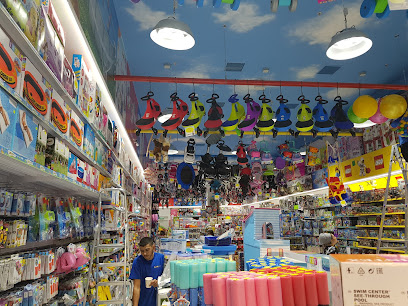
H&O
Explore trendy fashion at H&O in Eilat, a premier clothing store offering stylish apparel and accessories for all styles and budgets.
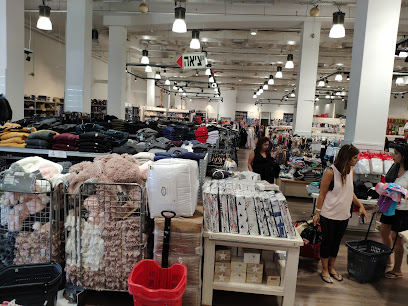
מרכז אבן אילת - Eilat Stone Center
Explore the breathtaking Eilat Stone Center, where art meets nature through exquisite jewelry and captivating geological exhibits.
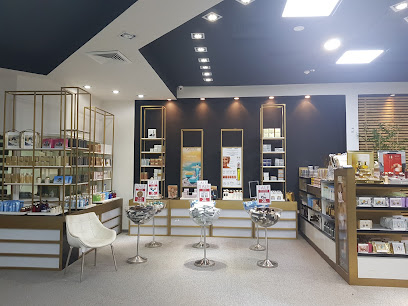
תכשיטי אבן אילת - Eilat Stone Jewelry
Discover the unique beauty of Eilat Stone Jewelry, where art, craftsmanship, and local charm come together to create unforgettable treasures.
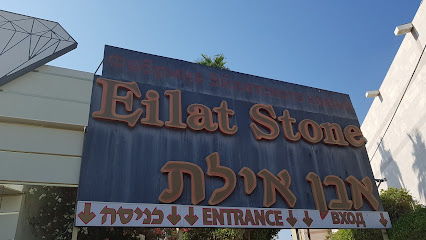
Dream Sport Eilat
Explore the best of Eilat's outdoor adventures with top-quality sporting goods at Dream Sport Eilat, your ultimate sports equipment destination.
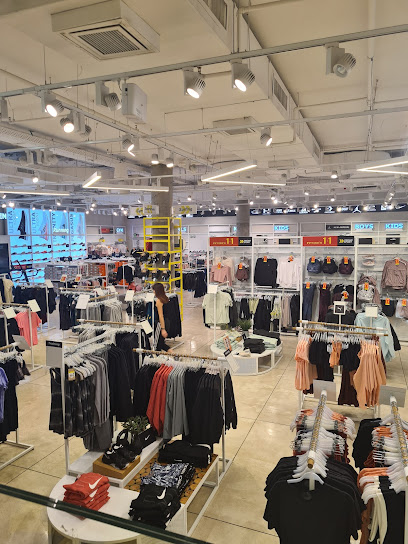
Watch Show Eilat – Official Rolex Retailer
Explore the finest luxury watches at Watch Show Eilat, the official Rolex retailer, in the vibrant coastal city of Eilat.
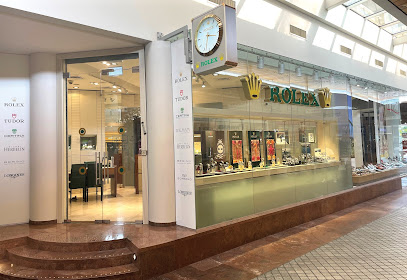
Planet Chaplin Eilat
Explore Planet Chaplin Eilat - your destination for exquisite watches that capture the essence of elegance and style.
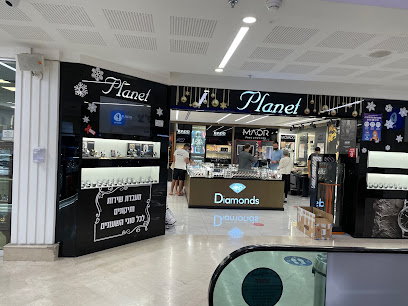
Razin Center
Explore Eilat's Razin Center, a vibrant supermarket and shopping mall offering fresh food, local delicacies, and a unique shopping experience.
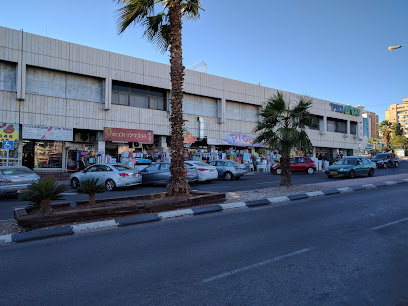
Golden Hands
Discover creativity at Golden Hands, Eilat's premier hobby store offering unique crafts and workshops that inspire artists of all levels.
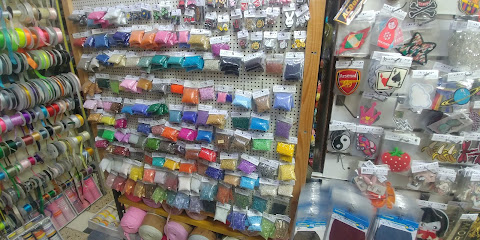
Essential bars & hidden hideouts
Three Monkeys
Experience the vibrant nightlife at Three Monkeys Pub in Eilat, where good drinks and entertainment meet a friendly atmosphere.
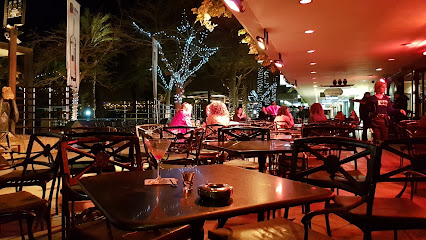
Barbis Eilat
Experience the vibrant culinary scene of Eilat at Barbis, where delicious grilled dishes and a lively atmosphere await every visitor.
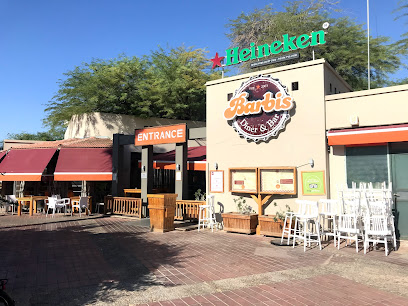
Paddy's
Experience the lively charm of Paddy's Irish Pub in Eilat, where traditional Irish hospitality meets vibrant nightlife in a stunning seaside city.
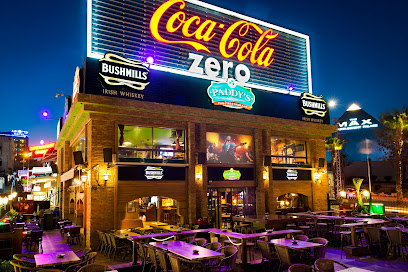
Mike's Place Eilat
Experience vibrant nightlife at Mike's Place Eilat, a premier bar and grill offering delicious food, live music, and a welcoming atmosphere.
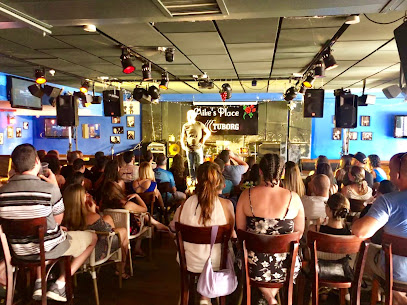
The Brewery
Discover The Brewery in Eilat: A lively gastropub offering craft beers and gourmet dishes in a vibrant atmosphere, perfect for food lovers and socializers.
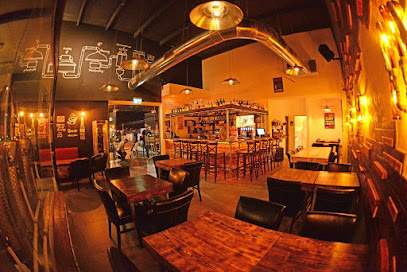
פאב הדובים
Experience the vibrant nightlife of Eilat at Bear's Pub, where great drinks, hookah, and a lively atmosphere await you.
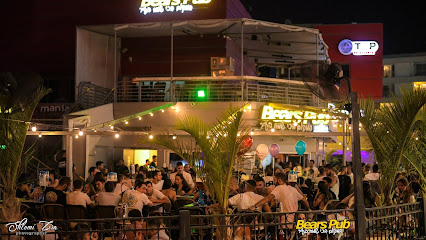
Beer Garden Eilat בירגארדן אילת
Discover the lively vibe of Beer Garden Eilat, where refreshing drinks meet delicious food in a picturesque outdoor setting.
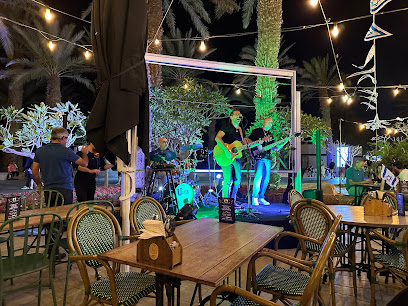
ביטלס
Discover the lively atmosphere and exquisite drinks at Bitals Bar, a top nightlife destination in Eilat, perfect for socializing and entertainment.
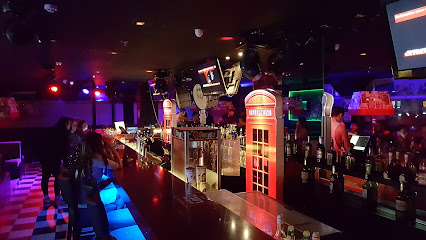
Bardak Eilat
Immerse yourself in Eilat's nightlife at Bardak Eilat, the ultimate cocktail bar for creative drinks and vibrant socializing.
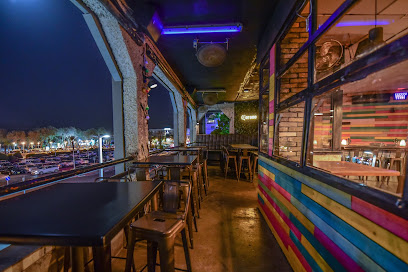
Messi BAR
Experience the vibrant nightlife at Messi BAR in Eilat, where unique drinks and an inviting atmosphere await every visitor.
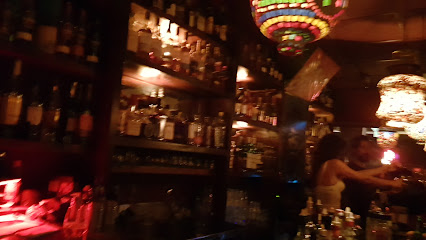
Drinkin bar
Experience Eilat's nightlife at Drinkin Bar, a lively venue blending bar, pub, and nightclub vibes for an unforgettable evening.
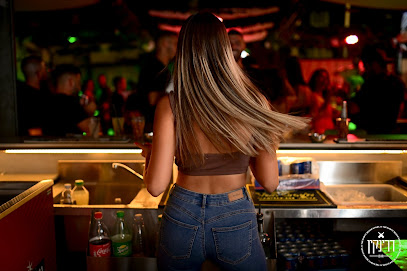
Tuki bar
Experience the vibrant nightlife of Eilat at Tuki Bar, where great drinks and lively entertainment create unforgettable memories.
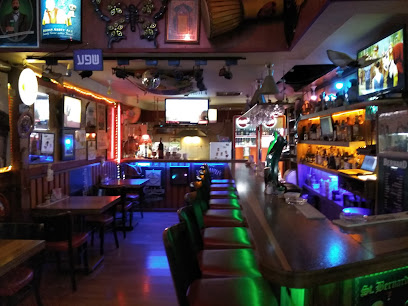
Bar En Eliat
Experience the vibrant nightlife of Eilat at Bar En, where cocktails, local beers, and live entertainment await in a welcoming atmosphere.
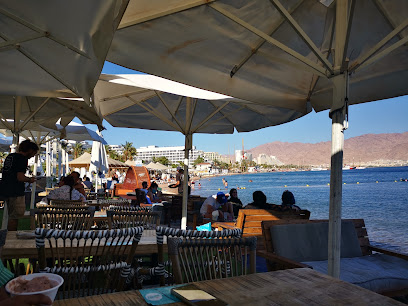
Gaby's Pub
Experience the vibrant nightlife at Gaby's Pub in Eilat, where great drinks and lively entertainment await every night from 9 PM to 5 AM.
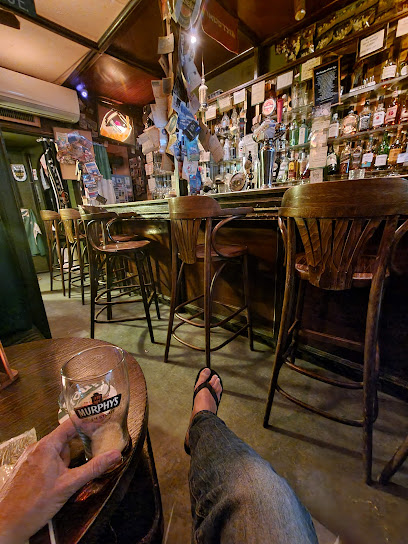
Local Phrases
-
- Helloשָלוֹם
[shalom] - Goodbyeלהתראות
[lehitraot] - Yesכֵּן
[ken] - Noלֹא
[lo] - Please/You're welcomeבבקשה
[bevakasha] - Thank youתודה
[toda] - Excuse me/Sorryסְלִיחָה
[slicha] - How are you?איך אתה?
[ech ata?] - Fine. And you?טוב. ואתה?
[tov. veata?] - Do you speak English?האם אתה מדבר אנגלית?
[haem ata medaber anglit?] - I don't understandאני לא מבין
[ani lo mevin]
- Helloשָלוֹם
-
- I'd like to see the menu, pleaseאני רוצה לראות את התפריט, בבקשה
[ani rotse leraot et hatafrid, bevakasha] - I don't eat meatאני לא אוכל בשר
[ani lo ochel basar] - Cheers!לחיים!
[lechayim] - I would like to pay, pleaseאני רוצה לשלם, בבקשה
[ani rotse lishlem, bevakasha]
- I'd like to see the menu, pleaseאני רוצה לראות את התפריט, בבקשה
-
- Help!עזור!
[ezor!] - Go away!לך לעבר!
[lech leavar!] - Call the Police!תקשר למשטרה!
[taksher lemishtara!] - Call a doctor!תקשר לרופא!
[taksher larofe!] - I'm lostאני אבוד
[ani avud] - I'm illאני חולה
[ani hole]
- Help!עזור!
-
- I'd like to buy...אני רוצה לקנות...
[ani rotse liknot...] - I'm just lookingאני רק מסתכל
[ani rak mistakel] - How much is it?כמה זה עולה?
[kama ze ole?] - That's too expensiveזה יקר מדי
[ze yakar madi] - Can you lower the price?אפשר להוריד את המחיר?
[efshar lehorid et hamehir?]
- I'd like to buy...אני רוצה לקנות...
-
- What time is it?מה השעה?
[ma hashaa?] - It's one o'clockהשעה חד
[hashaa chad] - Half past (10)חצי (עשר)
[chatzi (eser)] - Morningבוקר
[boker] - Afternoonצהריים
[tzohorayim] - Eveningערב
[erev] - Yesterdayאתמול
[etmol] - Todayהיום
[hayom] - Tomorrowמחר
[machar] - 1אחד
[echad] - 2שניים
[shnayim] - 3שלושה
[shlosha] - 4ארבעה
[arbaa] - 5חמישה
[chamisha] - 6שישה
[shisha] - 7שבעה
[sheva] - 8שמונה
[shmone] - 9תשעה
[teshaa] - 10עשרה
[eser]
- What time is it?מה השעה?
-
- Where's a/the...?איפה נמצא...
[eifo nimtza...] - What's the address?מה הכתובת?
[ma hakatovet?] - Can you show me (on the map)?אתה יכול להראות לי (על המפה)?
[ata yachol leharot li (al hamepa)?] - When's the next (bus)?מתי האוטובוס הבא?
[matay haotobus haba?] - A ticket (to ....)כרטיס (ל...)
[kartis (le...)]
- Where's a/the...?איפה נמצא...
History of Eilat
-
Eilat's history dates back to ancient times, with archaeological evidence suggesting human settlement as early as the 10th century BCE. The area was known as Elath in ancient texts and served as a key port and trade route for the Kingdom of Edom. The strategic location of Eilat made it an important hub for copper mining and trade, particularly with ancient Egypt.
-
During the Roman and Byzantine periods, Eilat continued to thrive as a significant port city. The Romans built a substantial fort known as Aila, marking the city's importance in maintaining control over the region. Byzantine influence brought Christianity to the area, resulting in the construction of churches and other religious structures.
-
The 7th century Islamic conquest saw Eilat come under Muslim rule, which brought new cultural and architectural influences. The city served as a vital link in the trade routes between the Arabian Peninsula and the Mediterranean. During the Crusader period, Eilat changed hands multiple times, reflecting the broader conflicts between Muslim and Christian forces in the region.
-
Under Ottoman rule from the 16th century onward, Eilat experienced periods of both prosperity and decline. The city's importance waned as regional trade routes shifted, but it remained a small, strategic outpost. Ottoman influence can still be seen in some of the architectural remnants and local traditions.
-
The modern history of Eilat begins in the 20th century, particularly after the establishment of the State of Israel in 1948. Eilat was formally recognized as part of Israel following the 1949 Armistice Agreements. In 1956, during the Sinai Campaign, Israeli forces captured the Egyptian-controlled Straits of Tiran, reestablishing Eilat's vital access to the Red Sea. This event marked the beginning of significant development and investment in the city's infrastructure.
-
From the 1960s onwards, Eilat transformed into a major tourist destination. The construction of luxury hotels, resorts, and recreational facilities attracted visitors from around the world. Eilat's unique position by the Red Sea, with its beautiful coral reefs and marine life, has made it a hotspot for diving, snorkeling, and eco-tourism. The Eilat International Music Festival and the Red Sea Jazz Festival have further solidified the city's cultural appeal.
-
A significant milestone in Eilat's recent history is the 1994 peace agreement between Israel and Jordan, known as the Arava Peace Agreement. This historic accord, signed in the Arava Valley near Eilat, has fostered cooperation and collaboration between the two nations. It has also boosted tourism and economic development in the region, with joint projects and initiatives enhancing the city's growth.
Eilat Essentials
-
Eilat is located at the southernmost tip of Israel, on the Red Sea. The nearest international airport is Ramon Airport (ETM), which is about 20 kilometers north of Eilat. From Ramon Airport, you can take a taxi, shuttle bus, or rent a car to reach the city. Alternatively, Eilat is accessible by road from major Israeli cities like Tel Aviv and Jerusalem, with bus services provided by companies such as Egged. The journey by bus takes approximately 4-5 hours. For those traveling from neighboring countries, Eilat can be reached via the Taba Border Crossing from Egypt.
-
Eilat has a well-developed public transportation system. Local buses operated by Egged provide convenient and affordable travel within the city. Taxis are widely available and can be hailed on the street or booked via phone or app. For a more personal experience, you can rent a car from one of the many car rental agencies. Additionally, Eilat is a bike-friendly city with numerous bike rental shops and dedicated cycling paths. Walking is also a great way to explore the city's compact and pedestrian-friendly areas.
-
The official currency of Israel is the Israeli New Shekel (ILS). Credit and debit cards are widely accepted in hotels, restaurants, and shops throughout Eilat. ATMs are readily available for cash withdrawals, and many establishments accept foreign currencies, particularly US dollars and euros. However, it is advisable to carry some local currency for small purchases and transactions in markets or smaller shops.
-
Eilat is generally a very safe destination for tourists. However, standard travel precautions should always be taken. Avoid leaving valuables unattended and be cautious in crowded areas. There are no specific neighborhoods in Eilat known for high crime rates targeting tourists, but it is always wise to stay vigilant. The promenade and tourist areas are well-patrolled by local police, making them safe for visitors.
-
In case of emergency, dial 100 for police, 101 for medical emergencies, and 102 for fire services. Eilat has a well-equipped hospital, Yoseftal Medical Center, for serious medical issues. Pharmacies are available throughout the city for minor health concerns and over-the-counter medications. It is recommended to have travel insurance that covers medical emergencies. For issues related to lost or stolen items, you can contact the local police station.
-
Fashion: Do dress comfortably and appropriately for the hot climate. Swimwear is acceptable at beaches and pools, but more conservative attire is recommended in public places. Religion: Do respect local customs and traditions. While Eilat is relatively liberal, modest dress is appreciated when visiting religious sites. Public Transport: Do respect other passengers and give up your seat to elderly or disabled individuals. Eating and drinking are generally allowed on buses, but it is polite to clean up after yourself. Greetings: Do greet people with a friendly 'Shalom' or 'Hello.' Handshakes are common, but it's best to follow the lead of the person you are greeting. Eating & Drinking: Do try local dishes and seafood. It is customary to leave a tip of around 10-15% in restaurants. Don't refuse hospitality, as it is considered impolite.
-
To experience Eilat like a local, visit the local markets such as the Eilat Farmers Market for fresh produce and handmade goods. Enjoy a stroll along the Eilat Promenade, where you can find local artists and performers. Take advantage of the city's beautiful beaches and try snorkeling or diving in the Coral Beach Nature Reserve. For a unique experience, visit the Underwater Observatory Marine Park. Don't miss out on the local nightlife, with many bars and clubs offering live music and entertainment.
Nearby Cities to Eilat
-
Things To Do in Aqaba
-
Things To Do in Wadi Rum
-
Things To Do in Petra
-
Things To Do in Ma'an
-
Things To Do in Dahab
-
Things To Do in Dana
-
Things To Do in Tafilah
-
Things To Do in Sharm El Sheikh
-
Things To Do in Beersheba
-
Things To Do in Kerak
-
Things To Do in Masada
-
Things To Do in Tabuk
-
Things To Do in Ein Gedi
-
Things To Do in Dead Sea
-
Things To Do in Suez
















